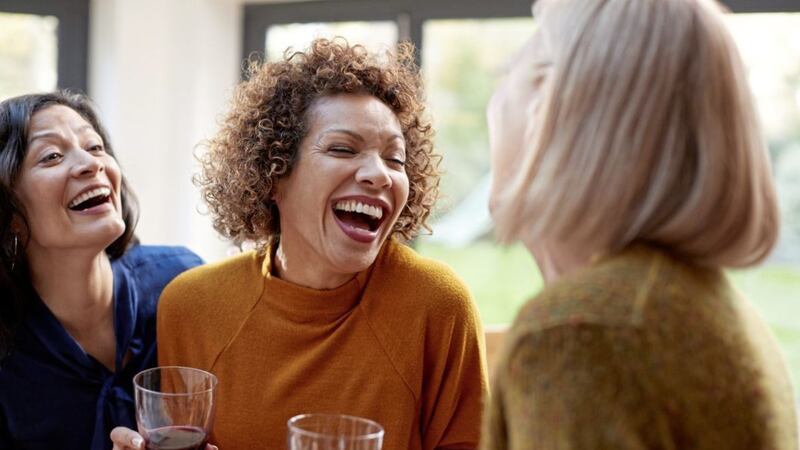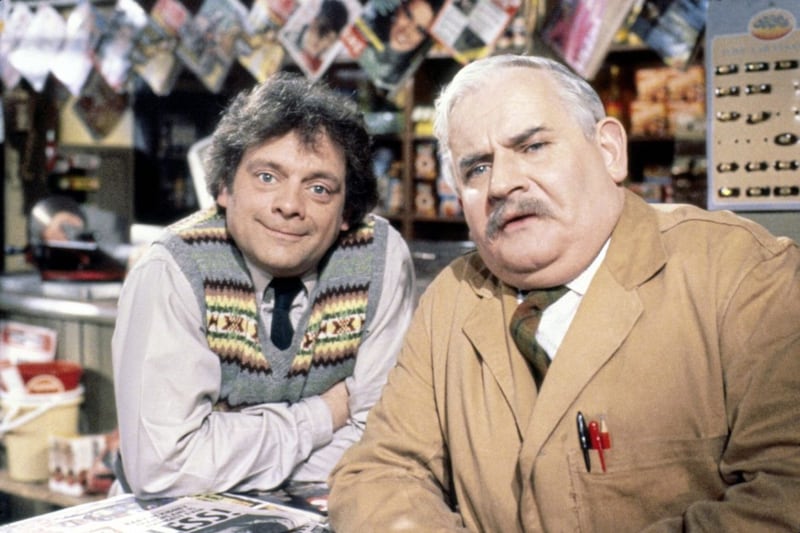UNDOUBTEDLY, the hardest part of Covid isolation has been not seeing friends.
Family furnishes us with the ready-made relationships we’re born into, but friends are the people we choose for ourselves.
Making friends is our first excursion into wider society. Some have the happy knack of it – others flounder miserably. Years of teaching mixed infants reveal, in the microcosm of the classroom, those with the gift and those who, despite encouragement, find it difficult.
They hesitate on the edge of play, unwilling or unable to join in. Most, eventually, come round with the heat, but the politics of the playground is where children find out about life, its fluctuating alliances, fickle allegiances and petty exclusions and encounter their first disappointments and injustices. The most frequent phrase uttered in the playground is, “S’not fair!”
It gets worse. Adolescence merely intensifies and complicates things. In the hormonal chaos of teenage years, friendships become temporarily more important than family and the root of much angst.
Teens are mercilessly judgemental and believe they are victims of parental plots to thwart their plans and ruin their lives.
Peer friendships are even more fraught. Remember the terrible betrayals of trust and fallings-out that couldn’t be mended? The insouciant carelessness that destroyed others’ self-esteem and the callous cruelty of exclusion from ‘the gang’?
Years down the line, I ran into a half-recognised contemporary at a conference who informed me, “You were utterly hateful at school”. I agreed with her.
As we progress through life, we shed friends like garments that no longer fit and acquire new ones – though some we keep for sentiment’s sake.
The trajectory of our lives dictates the pattern of friendship. School, college, career, social life, leisure pursuits, travel and mutual cultural interests all shape our relationships.
With a few significant expectations, we grow out of, or away from those with whom we were once closer than kin, now, all but strangers to us.
Friendships are like gardens – left untended, they wither and die of neglect. Only a few hardy annuals survive and these are the most deep-rooted, valued and enduring, whose company enhances life, reliable in a crisis and guaranteed to arrive with hot soup, candles and a gas heater in a power cut.
Life happens in phases. Time, distance and circumstance separate us. We move on. We move away.
When paths diverge, we regret the visits not made, the promises to keep in touch not honoured, the letters not written, the calls not made – all postponed beyond the point of embarrassment and exacerbated by the pace at which we live.
Friendship is the most sincere and valuable gift we’re ever offered. It ought to be a reciprocal deal, each contributing as much as the other (I fear were I weighed in that balance I’d be found wanting).
Some people are natural givers, others, takers – and there are such things as ‘toxic’ friends who leach the joy out of friendship by constant negativity.
Every friend occupies a place on the sliding scale of intimacy, from ‘casual company’ to ‘trusted confidante’. And among the throng there’s usually a ‘best friend’.
Best friends are in a league of their own and often, to the untutored eye, as unlikely a pairing as chalk and cheese, yet sharing a special bond.
Mutual counsellors, moral supporters, keepers of confidence and reiners-in of wilder excesses, they bicker fondly, exchange gentle insults and finish each other’s sentences, but are never happier than when together.
I lost a dear and valued friend last week – a remarkable woman, who, despite a busy professional, family and cultural life, found time to establish firm and lasting friendships.
With generous guidance, wise advice and a thousand unobtrusive kindnesses, she shepherded me through the Loving Spouse’s illness, death and the aftermath.
Friends are the scaffolding of our lives – the strong reliable arms that hold us up in a crisis, offer practical help as well as the comfort of their presence and coax us out of despair and doubt.
Cherish your friends. Express your gratitude while you can. More importantly – be a good friend yourself…








